By Beth Tichborne
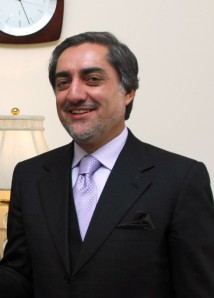 Abdullah Abdullah: In contrast to some of the other presidential candidates, warlords and deputy warlords, Abdullah Abdullah is presented in some media as an urbane and guilt-free man. However his short political career has given him opportunity to reveal where his own interests lie. He stood by the war criminals of the current government in 2007 when the “National Stability and Reconciliation” bill was discussed, and passed, granting themselves immunity from prosecution for past war crimes. If ever the waters of Kabul politics seem muddied with compromise and a confusion of alliances, votes like this one reveal the starkness of the issues at stake, and the unity of the elite power players on certain matters. Of all the harm done by the Western-installed government of Karzai, this vote must be one of the more damaging single events. It institutionalizes the turning away of the elite, whether they were directly involved or not, from the wounds in Afghan society.
Abdullah Abdullah: In contrast to some of the other presidential candidates, warlords and deputy warlords, Abdullah Abdullah is presented in some media as an urbane and guilt-free man. However his short political career has given him opportunity to reveal where his own interests lie. He stood by the war criminals of the current government in 2007 when the “National Stability and Reconciliation” bill was discussed, and passed, granting themselves immunity from prosecution for past war crimes. If ever the waters of Kabul politics seem muddied with compromise and a confusion of alliances, votes like this one reveal the starkness of the issues at stake, and the unity of the elite power players on certain matters. Of all the harm done by the Western-installed government of Karzai, this vote must be one of the more damaging single events. It institutionalizes the turning away of the elite, whether they were directly involved or not, from the wounds in Afghan society.
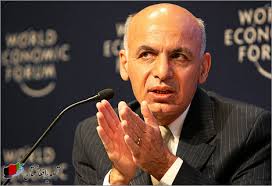 Ashraf Ghani Ahmadzai is certainly not a warlord. But the proud banner on his website “Global Thinker. Economist. Anthropologist. Politician.” doesn’t tell the full story either. He has received extravagant praise from Western think tanks, politicians and the media, for his financial ‘wizardry’ during his time in Karzai’s government.
Ashraf Ghani Ahmadzai is certainly not a warlord. But the proud banner on his website “Global Thinker. Economist. Anthropologist. Politician.” doesn’t tell the full story either. He has received extravagant praise from Western think tanks, politicians and the media, for his financial ‘wizardry’ during his time in Karzai’s government.
His expertise is in the apparently politically neutral ‘technocratic’ measures of financial reform and institution building. He developed this expertise in and academic career in the US and subsequently in working for the World Bank. His absence from the country gives him the advantage of a clean record in terms of war crimes, dealings with warlords and complicity in the barbarism of the past 30 years. But it carries also the disadvantage that he appears to be more a part of a global elite than of Afghan’s own political society. In his quarter of a century absence from the country he has worked at hawkish think tanks (namely the Brookings Institute. He has also co-founded the ‘Institute for State Effectiveness’, a think-tank that sets out the requirements citizens should have of their states (most of these just read like the definition of a functioning state, rather than being an attempt to formalise standards of accountability or legitimacy). He’s no neo-liberal, or he doesn’t talk like one. But a closer look at the output of the ISE shows us who he’s talking to, when he recaps some of his ministerial acheivements “Since 2002, the Afghan government has significantly improved the investment climate. Our new investment law allows for 100% direct foreign ownership.” (Afghanistan craves investment” Ghani 2004). If the message wasn’t clear he appealed to expats for support in standing, when first considering running for president, rather than any societal base within Afghanistan itself.
However, as any presidential candidate must do, he has chosen Vice Presidential candidates to stand with him that complement his own strengths and shore up his weaknesses. No warlord himself, Ghani has certainly more than compensated for the lack of blood in his past with the choice of Dostum as a running partner. Dostum, while he was a US ally, was responsible for the Dasht-i-Leili massacre, in which hundreds, or possibly thousands, of prisoners were suffocated to death in metal containers. Ghani will be hoping that Dostum’s presence on his slate will bring him block Uzbek votes, although it seems likely to cost him a number of votes as well, as it makes it harder for those who would like to vote for a mainstream candidate without voting for past war-crimes.
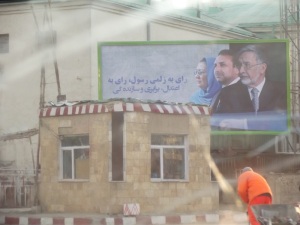 Rassoul is one of the big names in the presidential election. He resigned as Karzai’s foreign minister in order to stand for the elections, in October 2013. He is cosmopolitan, speaking a number of European languages, and having studied medicine in Paris as a young man in the early 1970s.
Rassoul is one of the big names in the presidential election. He resigned as Karzai’s foreign minister in order to stand for the elections, in October 2013. He is cosmopolitan, speaking a number of European languages, and having studied medicine in Paris as a young man in the early 1970s.
In his position as foreign minister he took opportunities to speak to the press, Afghan and international, about the requirements that must be made of the next president. To a certain extent his position helped him to shape the battlefield which he has now entered as a participant. Like other former ministers it has also increased his international audience. External support often depends, to a depressing, but perhaps not that surprising degree, on the proficiency in English of a candidate. He talks to foreign journalists about the Afghan people’s gratitude to the international forces, while politely reminding them that they are there at the will of their own governments and for the stated interest of their own protection.
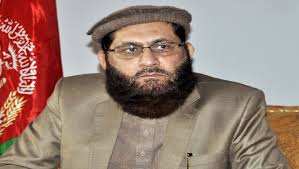 Qutbuddin Hilal is standing as an independent candidate, not as a representative of the notorious Hezb-i Islami, which he has been involved in for many years, as Hekmatyar’s deputy. This is just as well, as his stated focus on peace and equal access to education for girls is a bit of a startling contrast to his political career to date. Of all the mujahideen factions, Hezb-i Islami was one of the most feared and brutal. They received huge amounts of American money, channelled through the Pakistani ISI (along with money from Pakistan itself). They fought the Soviet occupation, but also used their position of best-funded militia to manipulate, betray and assassinate rivals, getting a head-start in the civil war before the resistance to the Soviet occupation had even come to an end. Hezb-i Islami were responsible for much of the shelling of Kabul that devastated the city in the early 1990s.
Qutbuddin Hilal is standing as an independent candidate, not as a representative of the notorious Hezb-i Islami, which he has been involved in for many years, as Hekmatyar’s deputy. This is just as well, as his stated focus on peace and equal access to education for girls is a bit of a startling contrast to his political career to date. Of all the mujahideen factions, Hezb-i Islami was one of the most feared and brutal. They received huge amounts of American money, channelled through the Pakistani ISI (along with money from Pakistan itself). They fought the Soviet occupation, but also used their position of best-funded militia to manipulate, betray and assassinate rivals, getting a head-start in the civil war before the resistance to the Soviet occupation had even come to an end. Hezb-i Islami were responsible for much of the shelling of Kabul that devastated the city in the early 1990s.
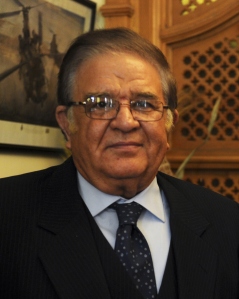 Wardak combines the unpopularity that comes with a close relationship with the US with the complications of a high-ranking mujahideen past. He fought with the National Islamic Front, known as one of the more ‘moderate’ of the seven major factions of the Soviet era.
Wardak combines the unpopularity that comes with a close relationship with the US with the complications of a high-ranking mujahideen past. He fought with the National Islamic Front, known as one of the more ‘moderate’ of the seven major factions of the Soviet era.
Wardak is unlikely to be considered a serious contender by many. He resigned from his post as Foreign Minister in 2012, following a vote of no-confidence from the parliament, due in large part to his US connections.
